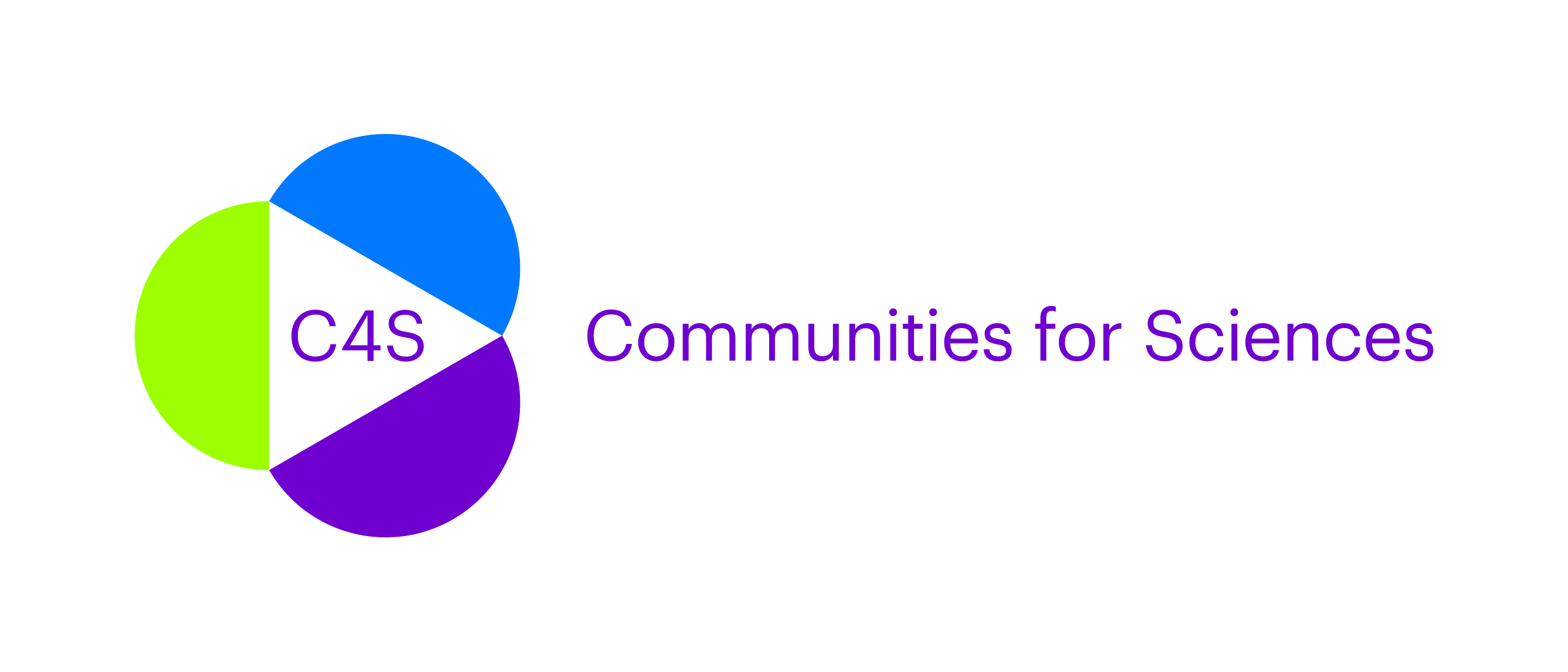Partnership
The Communities for Sciences (C4S) consortium is integrated by Fundació Universitària del Bages (Manresa campus of UVic-UCC) and Vic campus of UVic-UCC (both from Catalonia-Spain), IB University of Applied Health and Social Science (Germany), Galileo Progetti (Hungary), Universita’Degli Studi Di Milano-Biccocca (Italy), Board of Education for Vienna, European Office (Austria), Municipality of Sesto San Giovanni – Socio Educational Sector – GiocheriaLaboratori (Italy), Erasmus Brussel University of Applied Sciences and Arts (Belgium), Wirtschaftsuniversitat Wien (Austria), Lunds Universitet (Sweden) and New Bulgarian University (Bulgaria).

FUB (Manresa campus UVic-UCC)
Manresa campus of University of Vic – Central University of Catalonia (UVic-UCC). Since its creation 29 years ago, FUB has developed a high research activity around all its fields of knowledge, specifically in the Health Sciences and in the Early Childhood Education Studies. FUB has participated and collaborated in various European Projects, and also has a specialized unit dedicated to research management (DRI) that provides a variety of support functions to the researchers of the institution, assisting the drafting, submission, management and implementation of the projects.

Wirtschaftsuniversitat Wien
The RCE Vienna – as part of the Vienna University of Economics and Business – is a UN certified science-society interface that aims at trans-disciplinary research and new methods of transformational learning, teaching and knowledge exchange in the area of sustainable development and a “green economy”. For greater Vienna and the CENTROPE region we provide a wide stakeholder platform for an open dialogue and the co-creation of knowledge between researchers and societal actors. Herein, key-issues are topics such as sustainability-driven entrepreneurship, smart cities or the societal impact of higher education. In this context we do transdisciplinary research, teaching, training and focus on the regional implementation of science-business collaboration projects as well regional projects based on social learning and knowledge exchange.
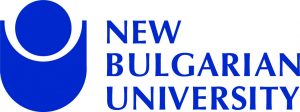
New Bulgarian University
New Bulgarian University is a private university established in 1991 with a resolution by Bulgarian Parliament. It was founded as an alternative to the traditional conservative educational practice in higher education in the country and has pioneered the introduction in Bulgaria of a credit system, Professional Bachelor’s, Bachelor’s and Master’s programs, distance and continuing education.
The mission of New Bulgarian University is to be an autonomous liberal education institution dedicated to the advancement of university education by offering accessible and affordable opportunities for interdisciplinary and specialised education and high-quality research. Bringing its academic potential to the service of society, the University prepares its graduates for the challenges of modern democratic life cultivating critical and creative thinking, sensitivity to cultural difference, and problem‐solving. New Bulgarian University provides a liberal arts education in which the acquisition of knowledge and professional skills is integrated with spiritual and ethical values. It prepares graduates for opportunities in the business and professional world in the following subject areas: Human Sciences and Humanities, Natural Sciences and Modern Technologies, and Arts.
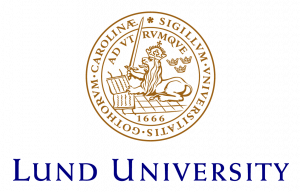
Lunds Universitet
Lund University is highly ranked in many international comparisons of higher education and has been consistently placed in the world’s top 100 universities in recent years. It is a full-scale university, the largest university in Sweden with 43 000 students. The Faculty of Medicine is one of eight faculties or scientific disciplines at Lund University. Education encompasses undergraduate education, postgraduate and continuing education carried out in nine basic programmes within medicine, biomedicine and the health sciences. All of the Faculty’s researchers and teachers participate in these core activities. Increasingly, the university’s areas of responsibility also encompass application to the society-referring to activities that are not traditionally considered part of the universities’ main tasks, but build on academic proficiency.

UVic (Vic campus UVic-UCC)
We are a young university, officially recognised by the Parliament of Catalonia in May 1997. We want to play a part in Europe and the wider world building on our strong Catalan roots. From its very beginnings UVic has promoted academic quality and a supportive context for student-centred training. Our teaching programmes offer quality and contact with students, as required for the European Higher Education Area. We also feel a strong commitment to Catalonia – its university system and the language and culture – and regional development, where we contribute to services outside the Barcelona area and promote a sustainable future.
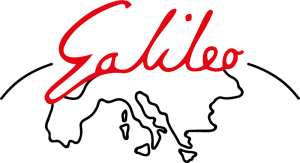
Galileo Progetti
Galileo Progetti Nonprofit Kft. is a non-profit organization, funded by Hungarian and Italian partners in 2009 and based in Budapest. The main objectives of Galileo are the development of social economy and social sector in general and the inclusion policies. Galileo also aims to develop the feeling of civil participation and European citizenship and works with particular attention for the inclusion of disadvantaged people or at risk of social exclusion, such as Roma minorities and disabled people. Galileo have continuous exchange of good practices and experiences among the European Union countries and works in collaboration with private and public local bodies, involving in European experiences organizations that are normally not very active at international level, guided by the belief that international experiences increase personal and professional skills and have a strongly positive impact on the development of the quality of the social sector at local level. Galileo has developed a wide local and EU network of social enterprises, educational institution, VET providers, public organisations at European level. It’s member of EU Network of Social Integration Enterprises and cooperated with EUROCHILD and ERIO.

Erasmushogeschool Brussel
Erasmus University College Brussels (EhB) is a Flemish higher education institution located in Brussels. It offers 21 BA and 4 MA-programmes in 9 different fields of study which are attended by more than 5.000 students, clustered in 4 departments and 2 Schools of Arts located on 5 campuses throughout the city. A sixth is currently under construction. The completion is expected for January 2020. The Department of Education and Pedagogy will have its home base in the new building. The departments offer Bachelor programs with a strong professional focus while the Schools of Arts offer Bachelors and Masters in Music, Audio Visual and Performing Arts. Erasmus University College Brussels has about 891 staff members, who represent 493 Full Time Equivalents (January 2018).
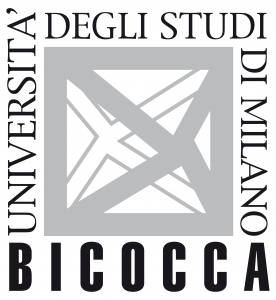
Università degli Studi di Milano-Bicocca
University of Milano-Bicocca, founded in 1998, is one of the most dynamic, research- and innovation-oriented Italian universities, inserted in relevant networks with top universities, research centres and corporations. It is a well-organised complex, having invested in teaching support services, state-of-the-art laboratories and modern infrastructures. UNIMIB includes 14 Departments with 33.400 students enrolled in the 2018/19 year. UNIMIB has 117 patents and 13 spin-offs, exploiting opportunities from a broad range of technological commercial sectors, namely in nanomedicine and biotechnology, therapeutic and diagnostic, energy and environment, smart materials and ICT.

Bildungsdirektion fuer Wien
The Board of Education for Vienna is the formal education authority for the Austrian capital and Federal State of Vienna responsible for the schooling of all children resident in Vienna aged 6-19. The European Office is a specialised unit within the Board of Education for Vienna dealing with the implementation and coordination of EU projects for the city and Federal state.
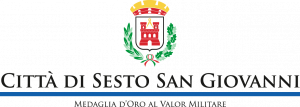
Comune di Sesto San Giovanni
Sesto San Giovanni offers its citizens a wide range of educational services: 1.- manages directly and through “Generiamo” Participation Foundation (of which the Municipality is the original founder) 7 nidi (for children from 3 months to 3 years), the Piccoli&Grandi service (aimed at families with children from 0 to 3 years) and GiocheriaLaboratori (which offers informal learning paths of science to children of the city’s kindergartens and primary schools and their families); 2.- school integration services (pre and post school and summer centres) for children attending kindergartens and primary schools.
Sesto San Giovanni is also the owner of the Educational Assistance service for children and young people with disabilities who attend schools at all levels.

IB Hochschule Berlin
IB Hochschule is a private accredited University of Applied Sciences founded in 2007. As a member of Internationer Bund e. V. The IB Hochschule is in the long tradition of the International Confederation e. V. (IB), the free institution for youth, social and educational work founded in 1949. The central idea of the IB is the preservation of basic democratic rights and human dignity. One of his founding fathers, Carlo Schmid, is co-designer of the German Basic Law. At more than 300 locations around 12,000 employees in 700 social and educational institutions actively support the ideas of the IB. The ideal principles of IB e. V., the board of trustees with its well-known representatives (m / w) from politics, business, science and culture, the academic senate, the university management and the faculty councils
Management structure
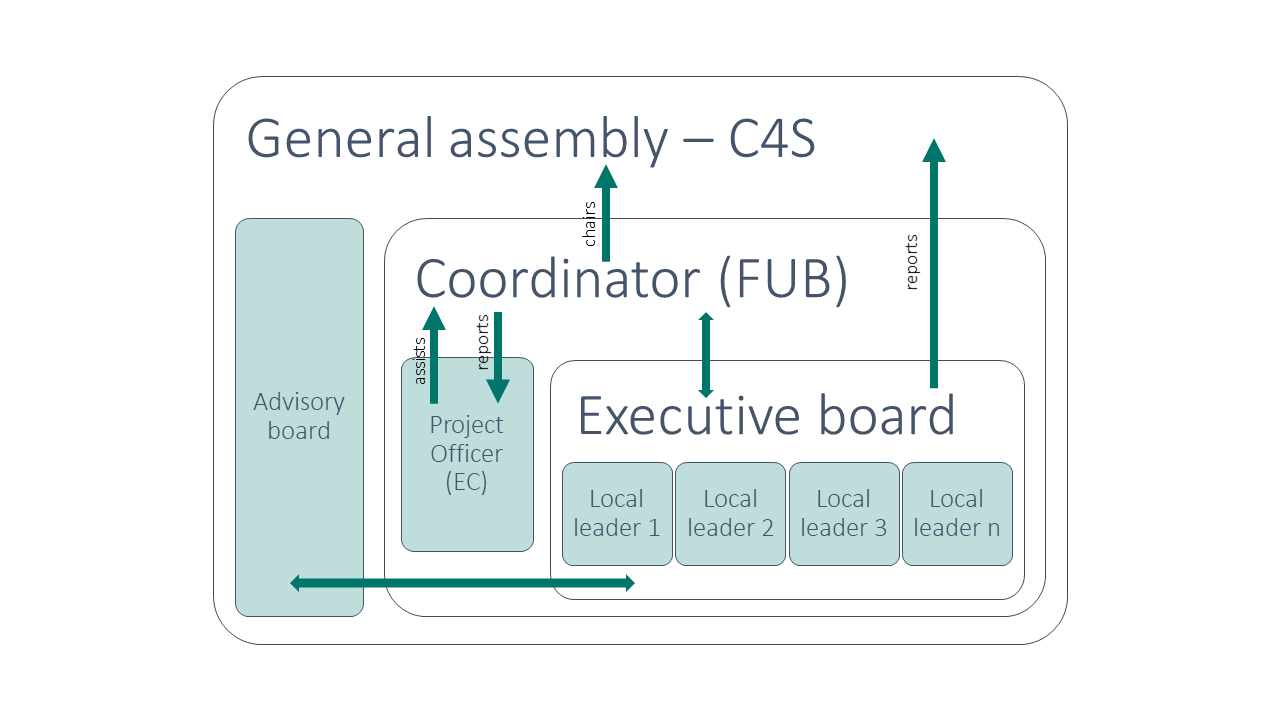
Work packages

WP1. Coordination and management
Leader: FUB (campus Manresa – UVic-UCC)
WP1 deals with the general project organisation and its main outcomes, by monitoring the accomplishment of its main objectives, evaluating the impact of the action plans undertaken and guaranteeing that the budget is distributed in accordance to the degree of involvement, activities and interventions (which also include the General Assembly meetings, seminars and workshops) of the partners.

WP2. RRI and Communities Assessment
Leader: RCE Vienna
WP2 coordinates the tasks related with the RRI dimensions of the project and also helps assessing the coherence between the project aims regarding inclusiveness and the practical work with the vulnerable communities. Part of the actions undertaken by this WP is to track the RRI aspects of the project and provide the tools and recommendations required (in science literacy, in ethical issues, in open science, etc.). Besides this, it also coordinates the external assessment and monitoring of the project work, by means of the Advisory Board (AB) with experts, the targeted vulnerable communities (including on gender/intersectional issues).

WP3. Hubs Coordination and Transference
Leader: EhB
WP3 focusses upon the coordination between the different Hubs by keeping track of the activities undertaken by them (in terms of outreach events, meetings with policy-makers and public administration, institutions involved, conferences and training activities for educators, etc.) and fostering their continuous and autonomous work. It also keeps the C4S partners updated on what the different Hubs do and establishes ad hoc networks between Hubs or Hub members whenever required to promote specific activities.

WP4. Research Management and Pilots
Leader: Università degli Studi di Milano-Bicocca
WP4 deals with coordinating the parameters for the research, detecting the research needs and coordinating the partners in the bibliographical aspects to support the local pilot designs and development, data gathering, data analysis, etc. Under this WP the local pilots related to the Community Living Labs are developed and implemented in the Hubs.

WP5. Communication and Dissemination
Leader: FUB (campus Manresa – UVic-UCC)
WP5 is mainly focused on designing and implementing communication strategies and in supporting the dissemination of the main processes and outcomes. Its role is not only focused in making visible the work with children and youths from vulnerable communities but also in promoting awareness on the importance of inclusion in science and science-related activities.

WP6. Ethics
Leader: FUB (campus Manresa – UVic-UCC)
WP6 is focused on keeping track of the coherence in the activities, practices and communication strategies designed and implemented within the project with its aims and scope.
